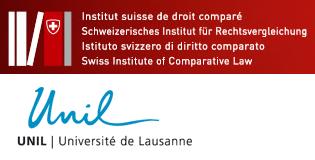Implementation of Art. 56 Brussels IIa in Greece
Following the formation of a specialized law drafting committee nearly 4 years ago, the implementation Act on cross border placement of children in accordance with Art. 56 Brussels IIa has been published in the Official State Gazette on June 23, 2017. The ‘Act’ constitutes part of a law, dealing with a number of issues irrelevant to the subject matter in question. The pertinent provisions are Articles 33-46 Law 4478/2017.
Art. 33 establishes the competent Central Authority, which is the Department for International Judicial Cooperation in Civil and Criminal Cases, attached to the Hellenic MoJ. Art. 34 lists the necessary documents to be submitted to the Greek Central Authority. Art. 35-37 state the requirements and the procedure for the placement of a child to an institution or a foster family in Greece. Advance payment for covering the essential needs of the child, and the duty of foreign Authorities to inform the respective Greek Central Authority in case of changes regarding the child’s status, are covered under Art. 38 & 39 respectively.
Art. 40 regulates the reverse situation, i.e. the placement of a Greek minor to an institution or a foster family within an EU Member State. A prior consent of the competent foreign State Authority is imperative, pursuant to Art. 41. The necessary documents are listed under Art. 42, whereas the procedure to be followed is explained in Art. 43. The modus operandi regarding the transmission of the judgment to the foreign Authority is clarified in Art. 44. A duty of the Prosecution Office for minors to request information on the status of the child at least every six months is established under Art. 45. Finally, Art. 46 covers aspects of transitional nature.
Prima facie it should be stated that the implementing provisions are welcome. In a country where not a single domestic tool has been enacted in the field of judicial cooperation in civil matters since the Brussels Convention era, this move allows us to hope for further initiatives by the government. However, swiftness is the key word in the matter at stake, and I wouldn’t be sure whether the procedure enacted would fully serve the cause.
Beyond that, there are some other hot topics related to the Brussels IIa Regulation and its implementation in Greece, the first and foremost being the rules and procedures for issuing the certificates referred to in Art. 39, 41 & 42 [Annexes I-IV of the Regulation]. Bearing in mind that the latter forms almost part of the court’s daily routine (at least in major first instance courts of the country), priority should have been given to an implementing act providing guidance on this issue, in stead of opting to elaborate on a matter with seemingly minimal practical implications.
Last but not least, it should be reminded that a relevant study has been released last year, commissioned by the Policy Department for Citizens’ Rights and Constitutional Affairs at the request of the JURI Committee of the European Parliament, which may be retrieved here.

